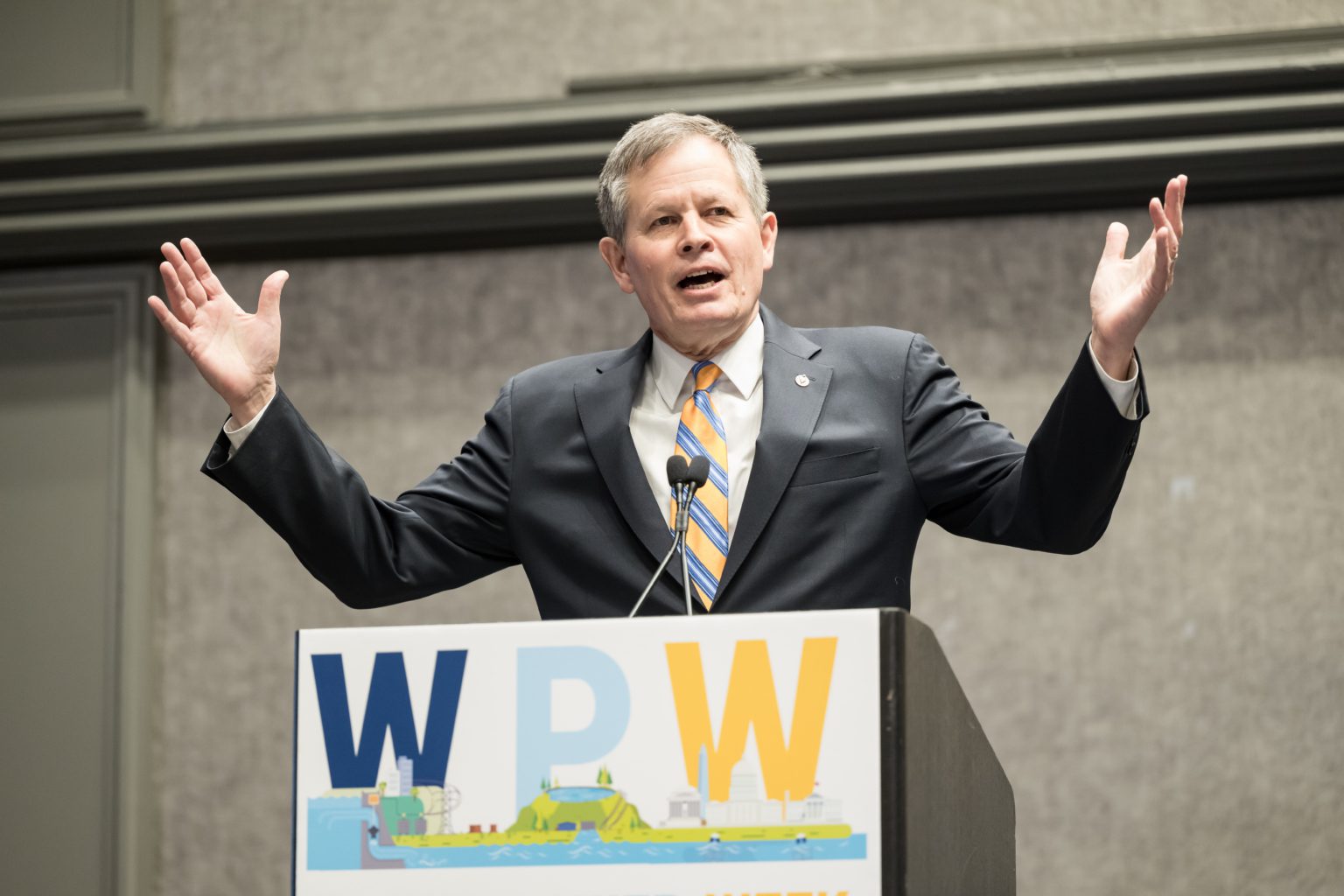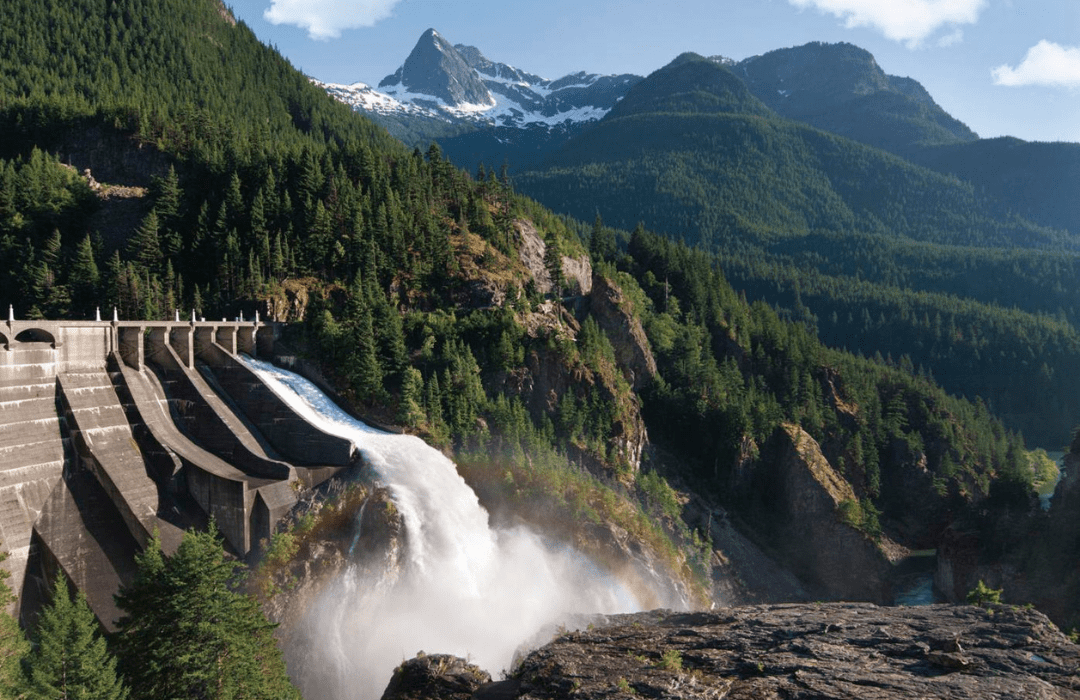By Brittney May, Legislative Affairs Manager, National Hydropower Association
With the rise of extreme weather events – as seen in California’s record-setting September 2022 heatwave and the current excruciating temperatures blanketing Texas – U.S. power systems must be reliable, resilient, and stable. Hydropower is critical to ensuring this grid security. Harnessed through the conversion of flowing or falling water into electricity, hydropower is a proven, renewable, carbon-free resource that provides enough sustainable energy to power over 30 million homes in the United States.
Hydropower provides an impressive 40% of our nation’s “black start” capabilities, which are crucial to restarting parts of the power system from a blackout. Hydropower plants can also rapidly respond to changes in electricity demand by increasing or decreasing power output within minutes. Grid operators need to meet consumer demand in real-time, regardless of sun and wind availability, and the consistent nature of hydropower allows the electric grid to accommodate a rapidly growing fleet of variable renewable resources.
However, the security of the electric grid is threatened by imminent dam closures and license surrenders. Nearly half of the nonfederal U.S. hydropower fleet, responsible for powering approximately 13 million homes, will be up for re-licensing by 2035. The current hydropower licensing and re-licensing process presents a significant hurdle to accelerated hydropower deployment and fails to protect existing hydro resources.
How the Current Hydropower Licensing Process Puts the U.S. Electric Grid at Risk

White House Senior Advisor John Podesta (right) talks about permitting reform with Xan Fishman of the Bipartisan Policy Center.
On average, re-licensing a hydropower facility takes between seven to ten years to complete and can cost upwards of $3.5 million, excluding the cost of fish passage, new turbines, and dam safety investments. The current process causes uncertainty, as re-licensing gets bogged down with delays and costs related to bureaucratic reviews by numerous agencies.
When faced with the choice of going through the complex license renewal process or decommissioning, hydropower owners are increasingly choosing to surrender their licenses. In fact, over one third (36.4%) of hydropower owners are actively considering decommissioning a facility while only 13.6% of these owners had previously considered decommissioning.
The 17 GW of hydropower capacity up for re-licensing is crucial; to bolster U.S. energy security and achieve climate ambitions, it is imperative that this integral source of energy is protected and that the current licensing and re-licensing process is streamlined.
The White House has hailed hydropower licensing reform as a key priority of the Biden Administration’s clean energy policy. As John Podesta, Senior Advisor to the President for Clean Energy Innovation and Implementation, remarked at a recent Bipartisan Policy Center Event, “We’ve got to fix the cost and delays that are bogging down the licensing process for hydropower projects. Hydro supplies 37% of zero-carbon power in the United States – and more than 30% of all the nonfederal hydropower licenses in the United States are set to expire by 2030. It’s time to reform the process so we can keep this crucial energy source online.”
The bipartisan Community and Hydropower Improvement Act offers common-sense solutions to improve the hydropower licensing process and allow the industry to harness existing hydro resources and expand generation capacity.
Streamlining Licensing and Re-Licensing with the Community and Hydropower Improvement Act

Senator Steve Daines (R-Montana) addresses attendees at Waterpower Week 2023 in Washington, D.C.
During the National Hydropower Association’s Waterpower Week in D.C., Senators Steve Daines (R-MT) and Maria Cantwell (D-WA) announced bipartisan legislation to improve and modernize the nonfederal hydropower licensing process. Titled the Community and Hydropower Improvement Act (S.1521), the proposed legislation amends the Federal Power Act (FPA) to streamline the Federal Energy Regulatory Commission (FERC) licensing, re-licensing, and license surrender process.
The Community and Hydropower Improvement Act would safeguard and increase hydropower production by better informing agency decision-making, improving coordination among agencies on timeline and information gathering, expediting low-impact projects, increasing tribal engagement, and ensuring environmental stewardship.
The legislation includes key industry priorities, such as:
- Establishing timelines for license reviews. This legislation expedites and adds certainty to the hydro permitting process by directing FERC to establish a two-year process to grant licenses for hydropower additions to non-powered dams and a three-year process for lower-impact projects, as well as closed-loop pumped storage projects. This promotes transparency in the hydropower regulatory process and reduces associated costs.
- Clarifying the scope of environmental review. Currently, more than a dozen agencies involved in the process can impose mandatory conditions, which can tack on tens of millions of dollars in re-licensing. In many cases, agencies impose overreaching mandatory conditions that have nothing to do with the hydropower facility itself. (For example, in various state water quality certifications, facilities are required to allow state access to the project to trap and kill feral pigs!) The legislation ensures that mandatory conditions submitted by certain federal agencies under sections 4(e) and 18 of the Federal Power Act address effects of the licensed project.
- Increasing inter-agency coordination. The legislation directs FERC to convene a conference with agencies that have conditioning authority in hydropower licensing at the beginning of the process, which allows involved organizations to establish a coordinated schedule to permit the timely completion of all federal authorization decisions. Any conflicting requirements imposed by different organizations would also be subject to dispute resolution at the end of the process. This will reduce duplication of work and redundancies and increase the efficiency of the permitting process.
Advancing Bipartisan Legislation
This legislation was introduced in the Senate on May 10, 2023. Since then, Sens. Jim Risch (R-ID), and Ron Wyden (D-OR) have become co-sponsors.
The bipartisan Community and Hydropower Improvement Act is the result of over two years of negotiations between the Uncommon Dialogue Coalition, who came together to find common ground and develop consensus on improvements to the hydropower licensing process. This is the largest bipartisan permitting reform proposal in decades, and it was informed by a wide range of stakeholders, including members of the hydropower industry, environmental organizations, tribes, and conservation groups.
“This bill is an important next step to strengthen hydropower’s role in providing our communities with power and bolstering our nation’s energy security,” Senator Daines stated during Waterpower Week in Washington, D.C. “By streamlining the permitting and execution of these exciting new projects and ensuring all voices are heard in their implementation, we can expand hydropower production and support our local economies.”
This strategic, common-sense package and meaningful reforms will help safeguard and expand vital hydropower resources. Improving the licensing process will allow hydropower to continue to provide clean, baseload energy to the electricity grid to promote U.S. energy security and help the nation reach its climate goals.
About the author: Brittney May is the legislative affairs manager at the National Hydropower Association (NHA). NHA is a nonprofit national association dedicated exclusively to preserving and expanding clean, renewable, affordable hydropower and marine energy.

